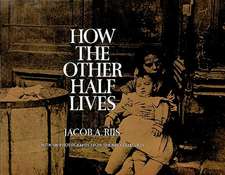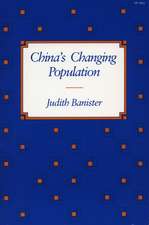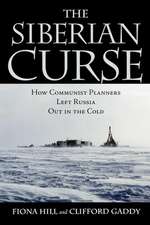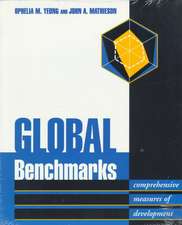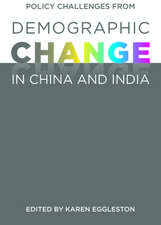Global Cities: A Short History: The Short Histories
Autor Greg Clarken Limba Engleză Paperback – 29 noi 2016
Why have some cities become great global urban centers, and what cities will be future leaders?
From Athens and Rome in ancient times to New York and Singapore today, a handful of cities have stood out as centers of global economic, military, or political power. In the twenty-first century, the number of truly global cities is greater than ever before, reflecting the globalization of both economic and political power.
In Global Cities: A Short History, Greg Clark, an internationally renowned British urbanist, examines the enduring forces—such as trade, migration, war and technology—that have enabled some cities to emerge from the pack into global leadership. Much more than an historical review, Clark's book looks to the future, examining the trends that are transforming cities around the world as well as the new challenges all global cities increasingly will face.
Which cities will be the global leaders of tomorrow? What are the common issues and opportunities they will face? What kinds of leadership can make these cities competitive and resilient? Clark offers answers to these and similar questions in a book that will be of interest to anyone who lives in or is affected by the world's great urban areas.
From Athens and Rome in ancient times to New York and Singapore today, a handful of cities have stood out as centers of global economic, military, or political power. In the twenty-first century, the number of truly global cities is greater than ever before, reflecting the globalization of both economic and political power.
In Global Cities: A Short History, Greg Clark, an internationally renowned British urbanist, examines the enduring forces—such as trade, migration, war and technology—that have enabled some cities to emerge from the pack into global leadership. Much more than an historical review, Clark's book looks to the future, examining the trends that are transforming cities around the world as well as the new challenges all global cities increasingly will face.
Which cities will be the global leaders of tomorrow? What are the common issues and opportunities they will face? What kinds of leadership can make these cities competitive and resilient? Clark offers answers to these and similar questions in a book that will be of interest to anyone who lives in or is affected by the world's great urban areas.
Preț: 135.06 lei
Nou
Puncte Express: 203
Preț estimativ în valută:
25.84€ • 27.64$ • 21.55£
25.84€ • 27.64$ • 21.55£
Carte tipărită la comandă
Livrare economică 17 aprilie-01 mai
Preluare comenzi: 021 569.72.76
Specificații
ISBN-13: 9780815728917
ISBN-10: 0815728913
Pagini: 224
Dimensiuni: 102 x 178 x 13 mm
Greutate: 0.23 kg
Editura: Brookings Institution Press
Colecția Brookings Institution Press
Seria The Short Histories
ISBN-10: 0815728913
Pagini: 224
Dimensiuni: 102 x 178 x 13 mm
Greutate: 0.23 kg
Editura: Brookings Institution Press
Colecția Brookings Institution Press
Seria The Short Histories
Textul de pe ultima copertă
Why have some cities become great global urban centers, and which cities will be future leaders?
From Athens and Rome in ancient times to New York and Singapore today, a handful of cities have stood out as centers of global economic, military, or political power. In the twenty-first century, the number of truly global cities is greater than ever before, reflecting the globalization of both economic and political power. New technologies and shifting geopolitics enable more cities to attract global talent and capital, lead in the hosting of new advanced industries, and achieve global recognition and influence.
In Global Cities: A Short History, Greg Clark, an internationally renowned British urbanist, examines the enduring forcessuch as trade, migration, war, and technologythat have enabled some cities to emerge from the pack as global leaders. Much more than a historical review, Clark s book looks to the future, examining trends that are transforming cities around the world as well as the challenges all global cities will face.
Which cities will be the global leaders of tomorrow? What are the common issues and opportunities they will face? What kinds of leadership can make these cities competitive and resilient? Clark offers answers to these and similar questions in a book that will be of interest to anyone who lives in or is influenced by the world s great concentrations of people and capital."
From Athens and Rome in ancient times to New York and Singapore today, a handful of cities have stood out as centers of global economic, military, or political power. In the twenty-first century, the number of truly global cities is greater than ever before, reflecting the globalization of both economic and political power. New technologies and shifting geopolitics enable more cities to attract global talent and capital, lead in the hosting of new advanced industries, and achieve global recognition and influence.
In Global Cities: A Short History, Greg Clark, an internationally renowned British urbanist, examines the enduring forcessuch as trade, migration, war, and technologythat have enabled some cities to emerge from the pack as global leaders. Much more than a historical review, Clark s book looks to the future, examining trends that are transforming cities around the world as well as the challenges all global cities will face.
Which cities will be the global leaders of tomorrow? What are the common issues and opportunities they will face? What kinds of leadership can make these cities competitive and resilient? Clark offers answers to these and similar questions in a book that will be of interest to anyone who lives in or is influenced by the world s great concentrations of people and capital."
Notă biografică
By Greg Clark






